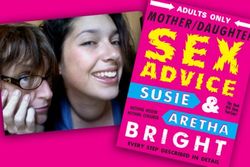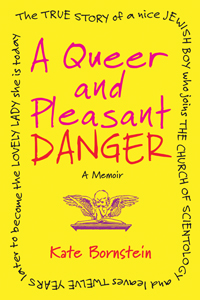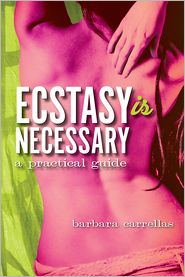This blog is part of a series I'm writing while I'm undating the fifteen year old "My Gender Workbook" for Routledge Press. I'm asking for your voice to be included in the spiffy new version, because you are so much more than the first version of the book could have predicted. Every couple of days, I'll be posting a new question for you to ponder. If the question tickles your fancy, by all means please speak to it. Be sure you've read the submission guidelines before you write your answer. Thanks for your help.
Kindly excuse the delay in posting. Nasty flu, now simply a bothersome cold. OK—back to working some gender. Today’s topic has been a big one for me, so I’m going to ask about it in two questions:
How has religion—or absence thereof—impacted your gender?
How has your spiritual path impacted your gender?
Here's where asking those two questions led me:
I was born in 1948 and raised to a teenager in a more or less secular Jewish family. We lit candles on the menorah, which stood on it's own table in front of our Christmas tree. My Bar Mitzvah was not an inspiring leap forward into manhood—it was an annoyance. As to gender—we knew there were strong women in the Old Testament, but nobody talked about them very much. The Judaism I grew up with was focused on the elements of the Old Testament that matched up with 1950's rampant machismo version of misognyny: men were better, more evolved, and more entitled humans than women. That was a given when I was growing up.
After my Bar Mitzvah, I pretty much cut ties with Judaism. If they had known who and what I really was—wanna-be-pretty-girl me? I would have been shunned. No, really. How often do you get to use the word shunned. Well, I would have been. So I lied about my gender for years and years. How about you? How was your gender shaped by the religion you grew up with? Or maybe it was the complete lack of a religion in your life that effected the expression of your gender?
In college, I studied and practiced tarot cards, Zen Buddhism, Alan Watts, and R.D. Laing. But as a stage actor and director, theater became my spiritual path. Gender is a whole lot more flexible in the theater, but back in the sixties, that only meant onstage. I knew there were a lot of boys who went off to live their lives as fabulous girls, but I was too scared to be one of them. It was safer to believe in Stanislavski, Jerzy Grotowski, John Cage, Bertolt Brecht, Peter Brook, and Viola Spolin. For four years, I trained in the methodology of transforming myself into someone else completely. It was heaven—except for my gender quandary. I still couldn’t talk about that. So I lied and said I was a guy at the same time I was learning the mechanics and spirituality it would take to become a girl. Theater was my spirit path. And you? Have you taken a road less travelled on your personal journey of self discovery?
After a year of graduate school, I dove head first into the Church of Scientology, where I stayed for twelve years. That’s a really embarrassing thing for me to tell people—far more difficult than telling strangers I’m an SM femme tranny dyke. Anyway, when I joined Scientology in 1970, they told me it wasn't a religion at all—they insisted that it was an applied religious philosophy. I never joined a religion, and I left Scientology in the early 1980's, just as all the religious trappings were becoming mandatory and more visible.
But here's what hooked me on Scientology: they told me I’m not my body and I’m not my mind. They told me I don’t have a soul—I am a soul, an inconceivably powerful immortal being that nobody had ever conceived of or named before, so they called it a thetan. Americans pronounce it to rhyme with Satan. Scientologists say that thetan comes from the Greek word theta, which they say means pure thought. I believed that we are pure thought—and implicit in that statement is the impossibility of a gendered thetan. It was a cool thing to believe in. Still is. Wait, there’s more.
Scientologists believe that at a certain point in your spiritual development, you can pick your own body next lifetime. Implicit in that was oh my god, I could be a girl next lifetime… if only I get to that spiritual whoopee place they were talking about. And sure enough, it was my gender that got in the way.
Homophobia, transphobia, and misogyny are explicit in the original versions of Scientology's canon. Someone recently told me that after I left the church, it was announced to the hundreds of staff I worked with—all my friends and family—that I liked to wear women’s underwear—and everyone laughed at me. That's exactly what I tried to avoid those twelve years by pretending to be a man. What I never got about Scientology is knowing that thetans really don't have a gender—and living their lives with an unconscious performance of the genders man and woman—why would they get their panties in a twist if I want to consciously mess around with my own gender?
Nowadays, I get my gender, showbiz & spirituality tips from Doctor Who, Mx Justin Vivian Bond, Murray Hill, and Lady Gaga. And that's how religion and spirituality have impacted my gender, and how gender has been my spiritual path. I would sum all that up by saying:
Living with no gender allows me to live with all genders. How do I live with no gender? I look for where gender is, and I go someplace else. Where do I look for gender? It's held tightly in the clenched fists of people who claim to know what's a real man and what's a real woman. I stay far away from them.
Yep, I could squeeze all that into two tweets with hashtags in both.
How about you?
- Has any revelation of your gender gotten you shamed by your religion?
- Has your gender effected your decison to attend or not attend services? What cool stuff have you learned from your religion that you can apply to your gender?
- What religious rules of gender did you obey when you were a little kid?
- Which rules did you break when you were a little kid, and what happened to you when you broke ‘em?
- Has any conscious decision you’ve made about your gender effected your spiritual/religious path? What does that feel like?
- Have you found yourself a religious and/or spiritual path that accepts and embraces the concepts of transgender and genderqueer? What’s that? How did you come across that one?
- Does spirituality and/or religion have nothing the fuck to do with your gender, and all this talk has been bullshit or just plain wacky?
The fact that you got this far into the blog tells me you’re the kind of person who might give this stuff more thought. That makes your voice really important in the world. So… please write me some words about you. Your lifetime experience of religion and/or spirituality or lack thereof—how has that entwined with the lifetime experience of gender?
I know this is a lot to think about—that's why I asked two questions: it means you can take two tweets (280 characters that include hashtag #mngw) to answer each question. That's a total of 560 characters that includes #mngw four times. Fair? Alright then, please do tweet away, my darlings. Or put some comments on this page. Be brave, remember to breathe, and always go for the cheap laugh.
Kiss kiss
Auntie Kate
Reminder: You can answer in the comments section of this blog, but Twitter is the very best way to respond. Response length, wherever you do it, is maximum 280 characters, two tweels. Your tweets do NOT have to be addressed to me, but DO remember to put the hashtag #MNGW on ALL your tweets about this or any other gender-y thing that might pop into your adorable li'l head.
 The gender workbook update is written and laid out in a final draft—everything but the acknowledgements. Since this is a crowdsourced book, I've thanked YOU in the dedication—yep, it's dedicated to twibe. Now, I'm asking for your input one last time: who deserves thanks?
The gender workbook update is written and laid out in a final draft—everything but the acknowledgements. Since this is a crowdsourced book, I've thanked YOU in the dedication—yep, it's dedicated to twibe. Now, I'm asking for your input one last time: who deserves thanks? 


